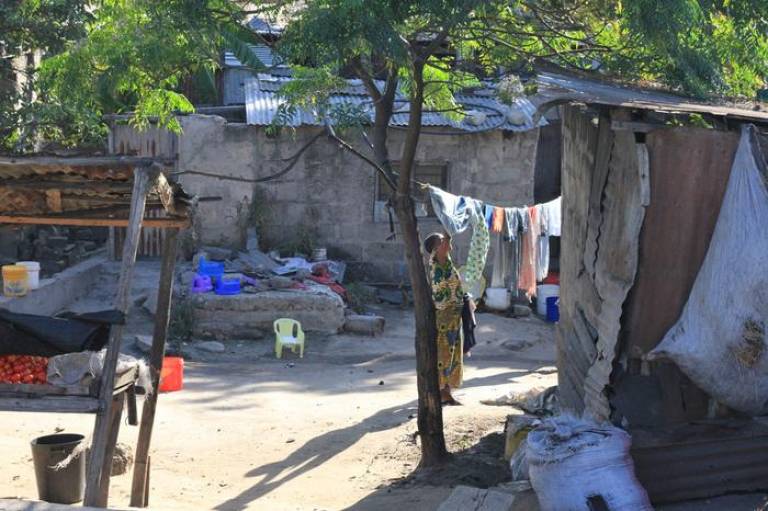
Overview
There has been a significant advocacy struggle around getting acknowledgement from state agencies that HIV and informal settlement do indeed interact, often compounding vulnerabilities of poor women and men. However, there has been less focus on how the interactions between HIV epidemics and informal settlements are conceptualised.
The research therefore seeks to contribute answers to the question: “What is the relationship between HIV and AIDS and informal settlement in eastern and southern African cities?”
Project Description
The project aims to contribute to more effective interventions in relation to informal settlements and HIV and AIDS epidemics through the dissemination of conceptual frameworks through transnational advocacy networks.
We seek to integrate analyses of HIV/AIDS and informal settlements, with a specific focus on the treatment of inequality and mobility as underlying factors for both phenomena, through (a) the exploration of current policy and practice assumptions about the relationship between HIV and informal settlements and (b) the identification of the contradictory treatment of shared policy concerns for the two phenomena.
Research suggest that the HIV epidemic is urbanising and that informal settlements have disproportionately high rates of prevalence and incidence. It has been estimated that 15% of women and men affected by the global epidemic live in just 14 cities in Eastern and Southern Africa. Furthermore, it is predicted that, by 2015/20, 50% of people with HIV in SSA will live in urban areas (van Renterghem & Jackson, 2009). However, an understanding of the linkages between HIV and informal settlement needs to go beyond numbers.
Despite the increasing acknowledgement of the linkages, interventions working on HIV in informal settlements tend to be approached from either an epidemiological, or a development planning perspective. While this division of focus capitalises on specific professional expertise, it can diminish the scope to understand and address the issues that operate as a result of the interactions of the two phenomena.
For instance, inequality (in various forms) is understood as a significant causal factor of both HIV and informal settlement. However, there is little understanding of how the different forms of inequality that underpin these two profoundly important phenomena interact. Thus, epidemiological interventions that conceive of the state as being ‘outside of’ processes underpinning the HIV epidemic could learn from work on informal settlement that demonstrates the complicity of the state in producing and sustaining various forms of informality and inequality.
Another common feature of both HIV and informal settlement interventions is a focus on notions of movement, transience and mobility. Thus, epidemiologists have focused on movement as a determinant of HIV infection, due both to the linkages between movement and vulnerability (eg those displaced by conflict or poverty), and of the importance of mobile populations as ‘vectors’ (eg migrant workers). This typically results in a policy focus on how movement can be managed. From the perspective of informal settlements, however, there is a contradictory approach. On the one hand, established informal settlement interventions often have a similar focus on managing and reducing movement (eg the priority given to supporting stable/ static forms of tenure, such as ownership, over more fluid forms of tenure, such as renting).
On the other hand, emerging planning policy addressing urban informality and poverty increasingly aims to facilitate movement and transience (through accessible transport infrastructure that links informal settlements to the wider city, and innovative forms of secure tenure) in recognition of mobility as a key factor in sustaining livelihoods. Therefore on the one hand both HIV and informal settlement interventions may be underpinned by shared problematic attempts to reduce or manage movement, and on the other hand, emerging informal settlement intervention promoting mobility may contradict HIV mobility management approaches.
Project Details
The project is led by Colin Marx (DPU) and Sarah Hawkes (Institute of Global Health) and Caren Levy (DPU) and Julian Walker (DPU) are members of the core research team.
The project is funded by a UCL Grand Challenge Award and will run from 1 April 2013 to 30 March 2014.
 Close
Close

